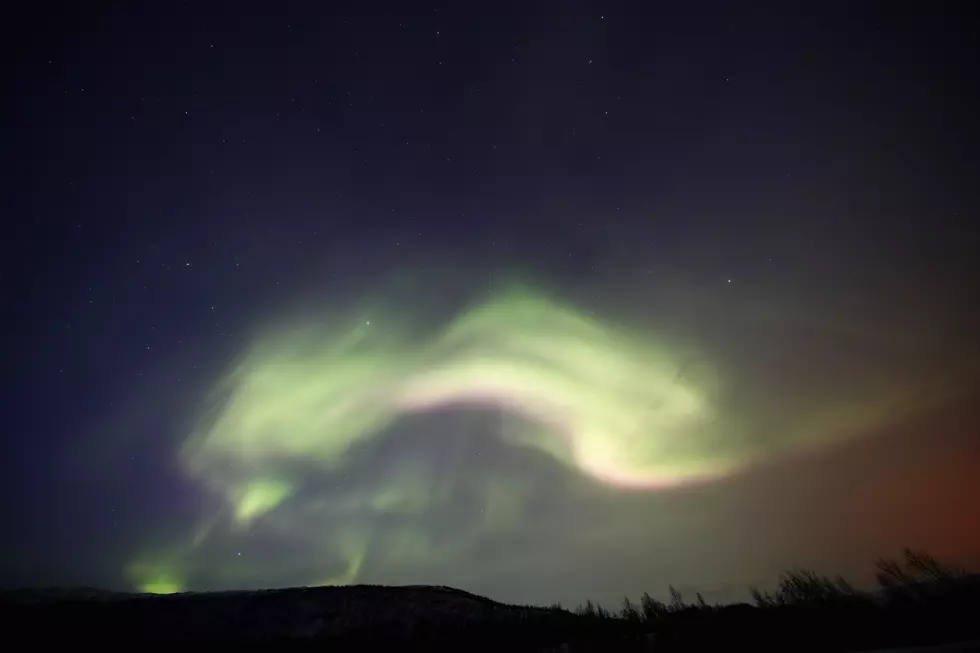
Northern Lights Could Be Visible Over the Hudson Valley
Geomagnetic storms occurring on the surface of the Sun could bring quite the light show above Wednesday night through Friday. While normally witnessed in the much higher latitudes closer to the poles, the Aurora Borealis can dip as far south as the center of the U.S. AccuWeather says that the latest storm emanating from the Sun could be strong enough tor the Northern mights to be seen over the Hudson Valley.
But, as often, weather can play a role. Will the skies remain clear overnight for a good viewing?
What Are the Northern Lights?
The Aurora (or, Northern Lights) are caused by giant solar winds that carry ionize particles that end up slamming into the Earth's atmosphere near the poles. That is basically what causes the greenish ghostly lights in the sky, though they're not often seen in latitudes this far south.

But while not an everyday occurrence, the Northern lights have been witnessed as far south as the Hudson Valley and the Catskills before. Sometimes, these "space weather" predictions can lead to quite a showing in the night skies above us. And sometimes not. It's kind of like predicting the weather here on Earth.
Space Storms
NOAA's Space Weather Prediction Center issued a G3 geomagnetic storm watch through Friday, This latest geomagnetic storm is rated a G3, on a scale of 1 to 5. And while this won't disrupt too much to out daily technology, it could drive the lights further south into our area. NOAA says that it can take around 15 to 18 hours for a coronal mass ejection to arrive from the Sun to Earth.
Weather Forecast for the Hudson Valley
The Weather Channel says that Wednesday night will be mostly cloudy with a chance for showers. Skies should start to clear by Thursday afternoon, and Thursday night looks to be the slightly better chance to witness the Northern Lights Friday night will see skies remain mostly cloudy across the Hudson Valley.
KEEP READING: Get answers to 51 of the most frequently asked weather questions...
More From WPDH-WPDA









